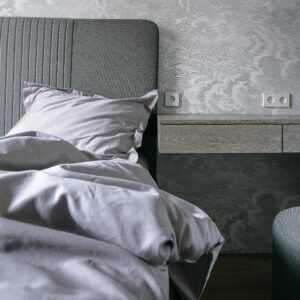
Essential Factors for Comparing Sheet Sets
The Ultimate Guide to Evaluating Bedding Quality: Essential Factors for Comparing Sheet Sets Welcome to the ultimate guide on evaluating bedding quality! When it comes

Are you tired of counting sheep and waking up feeling groggy, despite getting a full night’s sleep? It’s time to uncover the elusive secret behind achieving optimal sleep. Let’s delve into the world of sleep science to reveal the perfect sleeping conditions that will have you waking up refreshed, rejuvenated, and ready to conquer the day.
Sleep is a vital part of our daily routine and an essential component for overall health and well-being. Yet, in today’s fast-paced world, it is often overlooked or neglected. Many people sacrifice sleep to meet work deadlines, social commitments, or indulge in late-night screen time. However, what most fail to realize is that skimping on quality sleep can have significant consequences on both physical and mental health.
In recent years, there has been a growing interest in the science behind optimal sleep and its impact on our bodies. Research studies have shown that getting enough high-quality sleep can improve memory retention, concentration, mood regulation, immune function, and even weight management. On the other hand, chronic lack of sleep has been linked to an increased risk of diseases such as diabetes, heart disease, obesity, and depression.
When we talk about quality sleep, it’s not just about the number of hours we spend in bed but also the depth and restfulness of our slumber. While the recommended amount of sleep for adults is 7-9 hours per night, this number alone does not guarantee optimal health benefits if the quality of sleep is poor.
Studies have shown that different stages of sleep play a crucial role in brain development and restoration processes. Deep slow-wave sleep (SWS) helps with memory consolidation and repairing tissues while rapid eye movement (REM) sleep contributes to learning processes by stimulating neural connections.
Understanding the science behind sleep is crucial in achieving optimal rest and rejuvenation. Sleep is a naturally occurring state of rest for both humans and animals, which allows our bodies to repair and recharge for the next day. It is vital for maintaining physical, mental, and emotional well-being.
The process of sleep involves several complex mechanisms that are regulated by our internal body clock or circadian rhythm. This internal clock controls the timing of various biological processes, including when we feel tired or awake. It is influenced by external factors such as light exposure, daily routines, and environmental cues.
There are two main types of sleep: rapid eye movement (REM) sleep and non-REM sleep. During non-REM sleep, our brain activity slows down, and our body goes into a deep relaxation mode. This type of sleep is essential for physical restoration as it allows our muscles to relax and repair themselves after a day’s activities.
On the other hand, REM sleep is when most dreaming occurs. Our brain activity during this stage resembles that of being awake while our muscles remain relaxed. REM sleep plays an important role in cognitive functions such as memory consolidation, learning, and emotional regulation.
Our body goes through multiple cycles of non-REM and REM sleep throughout the night with each cycle lasting approximately 90 minutes. The amount of time we spend in each stage varies depending on age, lifestyle factors, and overall health.





The Ultimate Guide to Evaluating Bedding Quality: Essential Factors for Comparing Sheet Sets Welcome to the ultimate guide on evaluating bedding quality! When it comes

The Science Behind Optimal Sleep: Discovering the Perfect Sleeping Conditions Are you tired of counting sheep and waking up feeling groggy, despite getting a full

Mattress Protector Guide: There is Great Value In a Mattress Protector A mattress protector is a valuable investment that offers numerous benefits to enhance the

Get a Good Night’s Sleep with your Tax Refund at Largo Mattress Are you struggling to get a good night’s sleep? We have a great

Adjustable Beds: The Most Versatile Sleep System in Clearwater FL Welcome to Largo Mattress in Largo Florida If you’re looking for a new way to

Revitalize Your Sleep With a New Mattress in Clearwater FL Welcome to Largo Mattress in Largo Florida If you’re in Clearwater and looking to improve

Sleep Better Tonight: Discover The Best Mattress Store In Largo, Florida Welcome to Largo Mattress in Largo Florida Are you constantly tossing and turning at
Proudly Serving The Largo / Clearwater / St. Petersburg Area since 2012

For more than eleven years our mattress store has offered high-quality mattresses at discount prices. Come in and see why our customers save 50-75% off retail and always get a great night’s sleep!